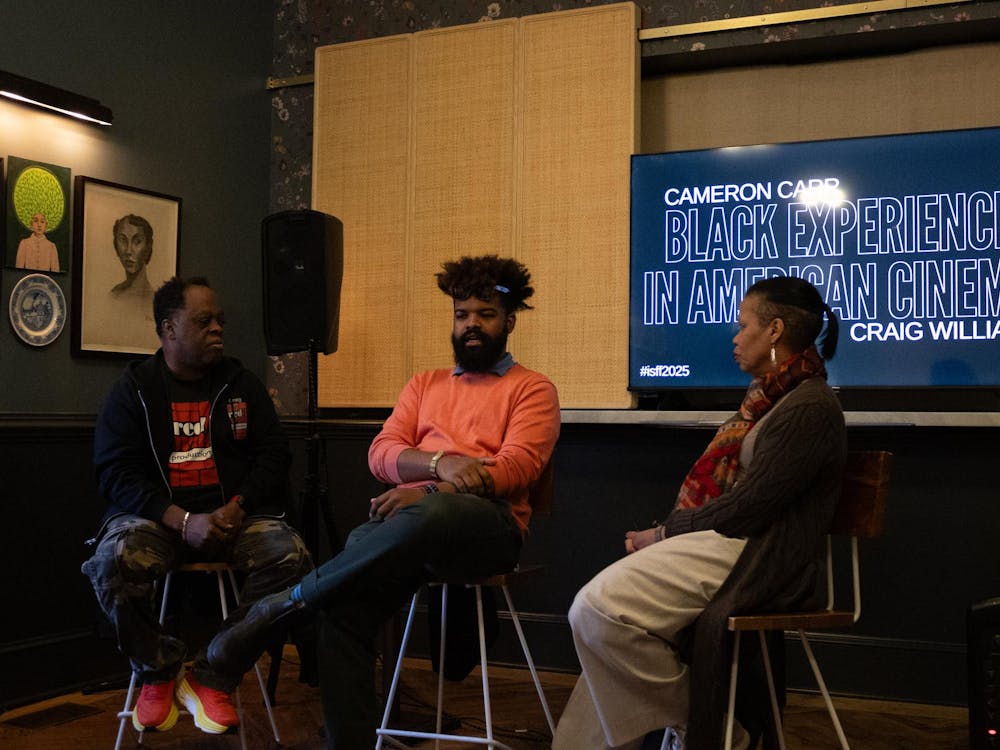I wish my life were a romantic comedy. I’d have the perfect amount of bookish charm and sass “to say the exact thing I wanted to say at the exact moment I wanted to say it” — a cue I picked up from “You’ve Got Mail.”
The storyline would be straightforward and simple, following the lives of two people longing for a personal connection, unexpectedly brought together by a road trip, radio show or online chat room (pre-“Catfish” of course). After a few break-ups and plenty of tears, my romantic endeavors would end with a satisfying conclusion at the top of the Empire State Building.
Rom-coms are my guilty pleasure. Despite its unoriginal, stock formula, my heart still melts watching “Love Actually.” I’m a proud, hopeless romantic with an unabashed belief in fairytales, soul mates and chance encounters.
With Valentine’s Day on our minds, the genre seems as cliché as ever, but it shouldn’t be discredited as a shallow genre whose prominence in the film industry is weakening. Romantic comedies may not be the hallmark of cinematic brilliance, but they have the ability to contribute insightful commentary about love and human relationships.
Take 1989’s “When Harry Met Sally.” Starring Meg Ryan and Billy Crystal, the movie is as light-hearted as they come, but the driving force behind its success goes much deeper than the titular characters’ contrived relationship.
At the start of the film, Harry (Crystal) poses the story’s central question: can men and women be “just friends”? He concludes that mutual friendship between genders is impossible because “the sex part always gets in the way.” On the other hand, Sally (Ryan) believes that friendship can exist without physical or romantic attraction.
In this exchange, writer Nora Ephron creates a contrast between men and women’s perspectives, leaving viewers to question their own friendships with the opposite sex and to ponder inherent gender differences.
Not only does the film explore these disparities, it also addresses the complexity of human relationships. Typically, romantic comedies build their story on the love-at-first-sight model, but Ephron disregards this fantasy ideal and crafts a slow-burning narrative set over the course of 10 years. Harry and Sally’s relationship begins on the basis of disagreement, but it evolves into one of mutual understanding. Throughout the story, the characters unveil layers upon layers of their opposing personalities that ultimately showcase their compatibility.
Even today, Ephron’s style resonates in romantic films. Amid superficial, dumbed-down romantic comedies, there exists a diamond in the rough to revive the declining genre. In 2013, that diamond was “Before Midnight.” Preceded by 1995’s “Before Sunrise” and 2004’s “Before Sunset,” the film corrupts the fairytale relationship and in doing so, exposes the vulnerability and fragility of love. Like Ephron’s work, the story is guided primarily by two characters’ dialogue and gradually reveals their strengths and weaknesses throughout the film. Whereas other movies consist of perfect, idealistic characters, “Before Midnight” doesn’t shy from portraying the ugly side of humanity.
However, meaningful commentary on these topics doesn’t begin with “When Harry Met Sally” and end with “Before Midnight.” The romantic comedy is a timeworn class of film, dating back to the works of William Shakespeare and Jane Austen. Throughout the years, their stories laid the foundation for popular contemporary films, including “10 Things I Hate About You,” “Bridget Jones’s Diary,” and “Clueless.”
The genre is a Hollywood staple, and though it’s easy to criticize the usage of outdated conventions, quality romantic films are not as far-fetched as they seem.
Some of the most critically-acclaimed movies are romantic comedies: “Silver Linings Playbook,” “The Spectacular Now” and “Enough Said,” to name a few. These films offer a refreshing and unorthodox approach to the standard formula. In seeking real characters, genuine dialogue and innovative narratives, their success signifies the continued prominence of an age-old genre.
Romantic comedies will flood television programming on Valentine’s Day, but don’t let the genre’s superficial appearance overshadow its true treasures.






